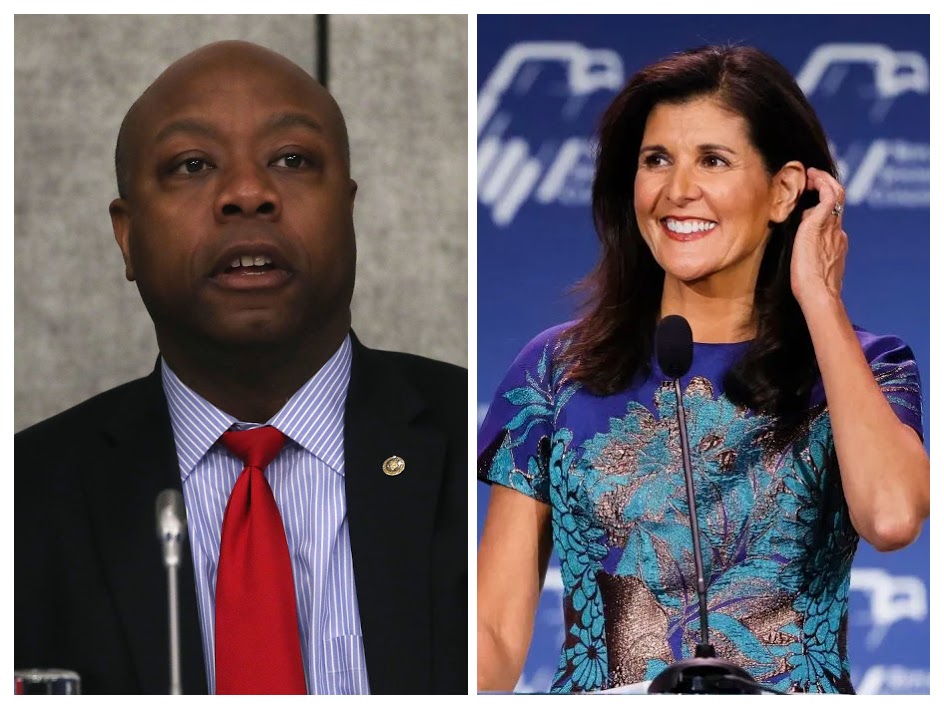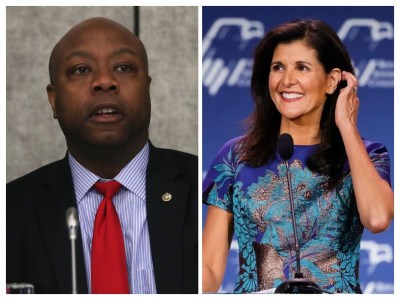Appetizer
The 22nd Amendment to the U.S. Constitution reads:
No person shall be elected to the office of the President more than twice, and no person who has held the office of President, or acted as President, for more than two years of a term to which some other person was elected President shall be elected to the office of the President more than once.
What does that mean? It means that if Donald Trump wins in 2024, he can’t run again. If Republicans nominate Trump this time around, they are voluntarily giving up the incumbency advantage in 2028. Ronald Reagan, Bill Clinton, George W. Bush, and Barack Obama all won second terms. Since Jimmy Carter lost to Reagan, only George H.W. Bush, who was arguably a third term, and Trump have failed to win a status quo vote for a second term. As in, Republicans would be massively handicapping themselves for the next go round.
Mike Pompeo has already started a soft launch along these lines. “We will nominate someone who is decent and serious and thoughtful and ready to crush it for eight years,” he told a New Hampshire radio show. I’d argue that’s a little too subtle for most normal, non-pocket-Constitution-carrying primary voters to pick up on. (Of course, maybe that was the point and Pompeo’s political operation campaign then pitched the line to NBC, which is why it led their story?)
Trump’s team has a ready response: His VP will be the de facto incumbent in 2028. But ask Al Gore how that went. (And if you’re wondering, as I was, Grover Cleveland’s vice president for his second, non-consecutive term, Adlai Stevenson I, didn’t run for president in 1896. He did, however, run again for vice president in 1900 with William Jennings Bryan … and lost.)
If you’re a dyed-in-the-wool Republican primary voter, this should give you pause. Trump already doesn’t seem that into campaigning for this job. All evidence points to the fact that he’s unlikely to win a general election in 2024. And you’d be giving up one of the biggest advantages any party can have four years down the road.
I’ll be curious to see if this picks up steam in the coming weeks and months as I suspect it will.
Entree
Why run for president when you’re definitely not going to be president?
Politico just reported Monday that “Tim Scott and Nikki Haley will participate in a presidential candidate forum set for next month in South Carolina, another sign that the two popular Palmetto State Republicans are on a track to becoming primary opponents.”
Great, but let’s be clear: There is an exceedingly low likelihood that either of these folks will be the 2024 GOP nominee. And before I get all your comments about how much you like Scott or Haley, I’m not arguing whether they’d be good nominees or better nominees … I’m making a factual assertion that their chances of winning are very, very low. Neither has a national fundraising base, has high name recognition, has hired staff in early states, or is polling above single digits. Bill Clinton was the last person to be in that position at this point and go on to win his party’s nomination. (And even then. In 1991, Jerry Brown was leading the Democratic field with 21 percent but more than 50 percent of respondents were undecided—about double today’s polling.)
But whether you think Haley and Scott are long shots, let’s stipulate that some people are going to get into this race whom logic dictates can’t win. Why do they do it?
Back in the era of smoke-filled rooms and party bosses, there used to be a potential downside to losing a bid for president. If you lost, you’d leave a trail of angry people in your wake who would block you from future positions. No more. The reason 17 Republicans ran in 2016 and 23 Democrats ran in 2020 is that it’s great for almost anyone’s career to throw his or her hat in the ring.
Candidates can enhance their national name recognition, build out their fundraising operation, increase their speaking fees, and get a cable news contract or a paid position on a board. Chances are good one of the runners up will be picked as a running mate—to say nothing of all the Cabinet positions and ambassadorships. Plus, it's actually a lot of fun to run for president. By definition, we're talking about folks who thrive on attention, and now they get to travel around the country speaking to eager audiences all on someone else’s dime.
Julian Castro was never going to be the Democratic nominee in 2020, but what else could he do? This is a guy who graduated law school in 2000, ran for city council the next year, started running for mayor four years after that, and resigned as mayor to join Obama’s Cabinet. A meteoric rise with no obvious rung to grab next. A guy like that can’t just … go home. Within months of ending his time as HUD secretary in 2017, he was writing his memoir and was hanging out in New Hampshire. What better way for a former Cabinet secretary to stay relevant than to stake out turf as the most progressive voice on a debate stage in front of millions of potential Democratic viewers and donors? He dropped out in January 2020 just before the Iowa caucuses and parlayed his progressive platform into a contract with MSNBC and a position on the board of directors for the Center for American Progress—no worse for the wear.
Andrew Yang was a total unknown whose quirky presidential run allowed him to launch a credible bid for New York mayor. Pete Buttigieg went from small town mayor to Cabinet secretary. Beto O’Rourke was able to raise (and spend) a combined $150 million dollars toward his failed Senate, presidential, and gubernatorial campaigns.
Ditto, Carly Fiorina, you may be thinking? Quite! Carly had never held elected office and had national name recognition below many of the contestants on The Bachelor. If Donald Trump had lost the 2016 election to Hillary Clinton, I think there’s a decent chance Fiorina could have been elected as RNC chair. And I think she would have been a sought-after GOP endorsement by any 2020 candidate. And that’s to say nothing of what would have happened if Donald Trump had been hit by an asteroid and Ted Cruz had been the nominee. Vice President Carly. (Disclaimer: I ran Carly’s campaign in 2016, for those who blocked that entire election out of their memory holes.)
A failed longshot presidential run—when matched with good political instincts and raw talent—can launch someone into stardom. And the downsides are minimal or at least outweighed by the bump in name recognition and fundraising data. Now that’s not to say there aren’t downsides to running and failing when you’re not a longshot. Scott Walker is, perhaps unfairly, the poster child of someone whose failed presidential bid hurt his reputation. Marco Rubio might be an even better example.
Politics is about expectations. You win when you exceed them, and you lose when you underperform.
So that brings us back to Haley and Scott. They’re neither Rubio nor Yang. I’d argue they are more like Cory Booker and Chris Christie—well-knowns within the party who have the potential to overperform and improve their standing with some risk of underperforming if they really come up short.
But their real job is to stay relevant for whatever might happen down the road. After all, there’s two ways to get a party nomination: bursting and building. Bill Clinton, Barack Obama, and Donald Trump were all bursters. Bob Dole, John McCain, and Mitt Romney all built on their previous runs for president to win the nomination. I’d argue Joe Biden and Al Gore were clearly builders. Ronald Reagan was a burster in 1980, even though he had run for president in 1976. George W. Bush might be the one true hybrid. He had the political operation and day one frontrunner status of a builder but the freshness of a burster.
This is all to say that Scott and Haley are clearly not bursters. If they want to be president someday, it will be by building and growing. But even that will require them to wrest attention away from Trump and DeSantis this cycle and that may be a tall order.
Dessert
True love can manifest in many different ways.







Please note that we at The Dispatch hold ourselves, our work, and our commenters to a higher standard than other places on the internet. We welcome comments that foster genuine debate or discussion—including comments critical of us or our work—but responses that include ad hominem attacks on fellow Dispatch members or are intended to stoke fear and anger may be moderated.
With your membership, you only have the ability to comment on The Morning Dispatch articles. Consider upgrading to join the conversation everywhere.